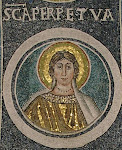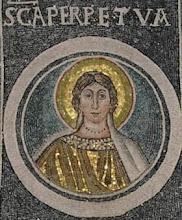“The woman and the man guilty of adultery or fornication—flog each of them with hundred stripes: Let no compassion move you in their case, in a matter prescribed by God, if ye believe in God and the last day.”Koran 24:2
Yet, as the New York Times explains the current law in Iran:
Iran’s penal code calls for death by stoning as the punishment for adultery. Males who are found guilty are buried up to the waist and females up to their necks. They are then pelted with stones until they die. If they manage to dig themselves out, they are pardoned.
And this past December in Iran:
Tehran - Two men have been stoned to death for adultery at a cemetery in the northeastern city of Mashhad while a third escaped with his life, the Iranian newspaper Etemad Melli reported on Sunday.
The reformist daily, quoting a statement from a group of lawyers and women's rights activists, said the stoning was carried out at Behesht Reza cemetery in the first week of the Iranian month of Day, which runs from December 21 to 26.
"One of them named Mahmoud, an Afghan national, was able to save himself from the stoning hole with serious injuries, but two others died," it said, identifying one of the men killed as Houshang Kh.
Although a moritorium on the punishment was advised by the head of the judiciary in 2002, the Washington Post reports that:
Ten people, including eight women, are now awaiting stoning, according to human rights activistsAnd a spokesman for Iran's judiciary, Ali Reza Jamshidi, said Tuesday:
"Judges can't act based simply on advisories by the head of the judiciary, since judges are independent,"
The discrepancy between the Koran and Sharia practice is explained by the website Answering Islam that there was an oral tradition which was recorded (hadith) that the verses in the Koran on stoning for adultery were lost (possibly eaten by a goat).
Consider this hadith:
Abdullah bin Umar says that a group of Jews came to the Prophet and said, "A man and a woman of our nation have comitted adultery." The Prophet asked them, "What does the Torah says about pelting stones?" They replied, "We humiliate them and give publicly to their evil act and punish them by flogging." Abdullah bin Salam said, "You are telling a lie. Bring the Torah which also ordains pelting stones." So they brought the Torah and one of them having covered his hand the verse relating to the pelting of stones read out the verse preceding it and the verse after it.
Abdullah bin Salam said, "Take off your hand." And the verse about pelting stones was seen clearly. The Jew said, "Abdullah bin Salam is right. The verse about pelting stones is there." Then the Prophet directed that both the committers of adultery be stoned to death and they met their fate. (traditions collected by Muslim and Bukhari) (In Yusuf Ali's commentary no. 2954 on verse an-Nur 24:2
And contrast it with John 8:1-11
But Jesus went to the Mount of Olives. At dawn he appeared again in the temple courts, where all the people gathered around him, and he sat down to teach them. The teachers of the law and the Pharisees brought in a woman caught in adultery. They made her stand before the group 4and said to Jesus, "Teacher, this woman was caught in the act of adultery. In the Law Moses commanded us to stone such women. Now what do you say?" They were using this question as a trap, in order to have a basis for accusing him.
But Jesus bent down and started to write on the ground with his finger. When they kept on questioning him, he straightened up and said to them, "If any one of you is without sin, let him be the first to throw a stone at her." Again he stooped down and wrote on the ground.
At this, those who heard began to go away one at a time, the older ones first, until only Jesus was left, with the woman still standing there. 10Jesus straightened up and asked her, "Woman, where are they? Has no one condemned you?"
"No one, sir," she said. "Then neither do I condemn you," Jesus declared. "Go now and leave your life of sin."
Hat Tip Women Against Shariah





No comments:
Post a Comment